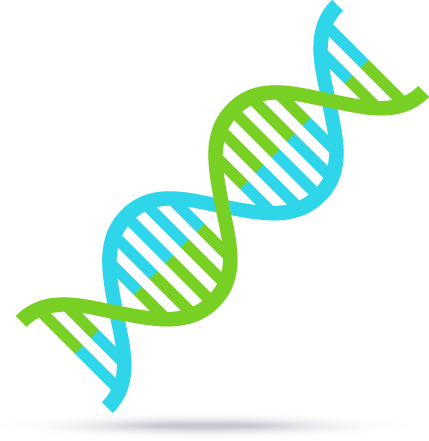Genetic Disorders
Get the Best Insurance Plan that fits for your Need

What are Genetic Disorders?
Every DNA molecule in a living being carries genetic information essential for its growth and functioning. DNA is responsible for all physical characteristics, from a person’s skin colour to his body type. So, a small change in the DNA can significantly affect the body.
A genetic disorder is a health condition caused by variations in the normal DNA sequence. This can occur in the form of genetic mutations (i.e. harmful changes) or the presence of an extra chromosome. The impact of these abnormalities may be visible during birth or develop later in life.

List of Genetic Disorders
Arthritis
Cancer
Coronary Artery Disease
Cystic Fibrosis
Diabetes
Down Syndrome
Duchenne’s Muscular Dystrophy (DMD)
FragileX Syndrome
Haemophilia
High Blood Pressure
Migraine
Obesity
Sickle Cell Anemia
Spina Bifida
Tay-Sachs Disease
Thalassemia
Turner Syndrome
Types of Genetic Disorders
Monogenic Inheritance
These disorders are caused due to mutations in the DNA sequence of a single gene. There are several patterns. E.g. Cystic Fibrosis, fragile X Syndrome
Multifactorial Inheritance
These disorders are caused by both genetic mutations and environmental factors. They are also known as complex or polygenic inheritance disorders. E.g. Arthritis, Diabetes, Obesity
Chromosomal Abnormalities
As chromosomes carry genetic information, any variation in their number or structure can result in a genetic disorder. E.g. Down Syndrome, Turner Syndrome
Mitochondrial Inheritance
Mitochondrial genes are inherited by the child only from its mother. Mutations in the mitochondrial DNA can cause several disorders that may be passed by mothers to their children. E.g. Leber’s Optic Atrophy (a type of eye disease), Mitochondrial Encephalopathy
What are the Symptoms of Genetic Disorders?
Hearing or vision impairments
Mobility issues due to muscle weakness or stiffness
Difficulty in normal breathing
Difficulty in eating, swallowing, and digesting food
Abnormal behavioural pattern
Unusual facial features and other physical characteristics
Poor physical growth
Learning disabilities and cognitive deficits
Delays in achieving normal developmental milestones
What are the Causes of Genetic Disorders?
Genetic mutations that affect a gene’s protein-making capabilities
Variations in the number or structure of chromosomes
Translocation, or the shifting of genes from one chromosome to another
Missing parts of a chromosome
Exposure to toxins, harmful chemicals, and radiation
Lifestyle influences such as smoking
How are Genetic Disorders Diagnosed?
Prenatal Screening
This procedure involves testing the blood of a pregnant woman to check the possibility of the fetus having chromosomal abnormalities
Prenatal Diagnostic Testing
A sample of amniotic fluid from the uterus is tested to check whether the fetus has some risk of developing a genetic disorder
Carrier Testing
The procedure involves a blood test to check whether the person carries a gene associated with any genetic disease. Both partners can undertake this procedure despite not having any family history of genetic disorders.
Predictive Genetic Testing
This procedure can determine the probability of a healthy person developing diseases such as heart ailments or cancer
Newborn Screening
Blood tests can be conducted on newborn babies to detect and treat genetic disorders as early as possible
Frequently Asked Questions on Genetic Disorders
Can genetic disorders be fully cured?
Unfortunately, most genetic disorders do not have a permanent cure. However, many of these conditions can be effectively managed with proper medicines, treatments, diet, and lifestyle changes.
How do you prevent genetic disorders?
Many of the genetic disorders are caused by factors beyond our control. However, genetic counselling and testing procedures can help you understand the risk factors and the probability of developing a genetic disease. This is primarily important for those with a family history of genetic disorders.
Are genetic disorders caused only due to inheritance?
Many of the genetic disorders are passed on to children by parents with defective genes or abnormal chromosomes. However, there are quite a few disorders that develop due to changes in a person’s DNA. This can occur at any time during a person’s life.
Can genetic defects cause mental health problems in children?
Several scientific studies have reported that many of the psychiatric illnesses can be passed on by parents to their children. This includes disorders such as autism, schizophrenia, bipolar disorder, and depression.
Disclaimer: The health insurance policies cover may differ among insurance companies and depend on your chosen health coverage plans. Before making any decisions, it’s crucial to read the policy wording carefully.






